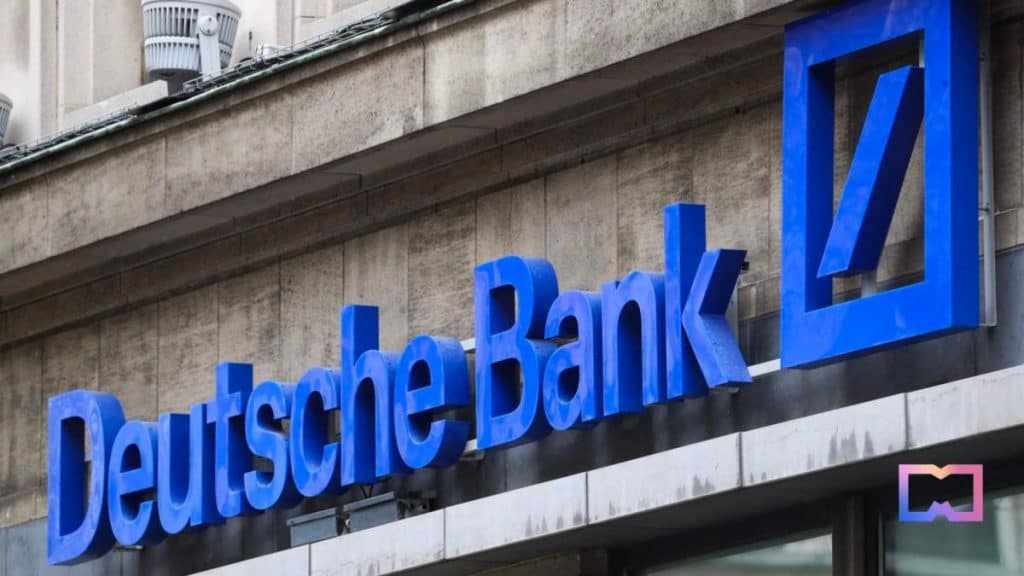Deutsche Bank Partners with Taurus for Crypto and Digital Asset Management


In Brief
Deutsche Bank has partnered with Taurus to manage crypto, tokenized assets and digital currencies.

Germany’s premier financial institution Deutsche Bank, announced a collaboration with Swiss startup Taurus to provide services in digital asset custody and tokenization.
Deutsche Bank disclosed its crypto custody ambitions in an early 2021 report from the World Economic Forum. In a more recent development, the bank has applied for a crypto custody license with Germany’s financial watchdog, BaFin, emphasizing its dedication to the exploration of the digital assets sector.
Regulatory frameworks, such as Germany’s crypto custody rules and Europe’s forthcoming Markets in Crypto-Assets (MiCA) regulation, provide traditional financial institutions with the necessary guidance for entering this burgeoning market.
Deutsche Bank’s Strategic Investment in Taurus
Deutsche Bank isn’t just collaborating with Taurus; it’s also a stakeholder. The bank was part of a $65 million Series B funding round for the Swiss company earlier this year, led by Credit Suisse and featuring other significant players like Arab Bank Switzerland and Pictet Group.
Lamine Brahimi, co-founder of Taurus, revealed that Deutsche Bank initiated an evaluation of potential crypto custody service providers in late 2021. The decision to collaborate with Taurus was solidified in 2022.
The partnership between Deutsche Bank and Taurus goes beyond cryptocurrencies. Paul Maley, Deutsche Bank’s global head of securities services, explained that the initial phase will encompass custody services for specific cryptocurrencies and select stablecoins. However, the broader vision extends even further.
Deutsche Bank intends to leverage the burgeoning trend of tokenized financial assets and offer asset servicing asset servicing, wherever applicable.
A New Age of Financial Assets?
The collaboration between Bank and Taurus signifies more than a typical partnership. It represents the convergence of traditional financial services with digital asset technologies. As Deutsche Bank enters the digital assets arena, questions emerge regarding its impact on the banking industry and financial markets.
Will other traditional banks follow suit? Is there a potential for an accelerated adoption of digital assets, transitioning from speculative instruments to integral components of corporate and institutional financial strategies? Only time will tell.
Disclaimer
In line with the Trust Project guidelines, please note that the information provided on this page is not intended to be and should not be interpreted as legal, tax, investment, financial, or any other form of advice. It is important to only invest what you can afford to lose and to seek independent financial advice if you have any doubts. For further information, we suggest referring to the terms and conditions as well as the help and support pages provided by the issuer or advertiser. MetaversePost is committed to accurate, unbiased reporting, but market conditions are subject to change without notice.
About The Author
Nik is an accomplished analyst and writer at Metaverse Post, specializing in delivering cutting-edge insights into the fast-paced world of technology, with a particular emphasis on AI/ML, XR, VR, on-chain analytics, and blockchain development. His articles engage and inform a diverse audience, helping them stay ahead of the technological curve. Possessing a Master's degree in Economics and Management, Nik has a solid grasp of the nuances of the business world and its intersection with emergent technologies.
More articles

Nik is an accomplished analyst and writer at Metaverse Post, specializing in delivering cutting-edge insights into the fast-paced world of technology, with a particular emphasis on AI/ML, XR, VR, on-chain analytics, and blockchain development. His articles engage and inform a diverse audience, helping them stay ahead of the technological curve. Possessing a Master's degree in Economics and Management, Nik has a solid grasp of the nuances of the business world and its intersection with emergent technologies.






















































